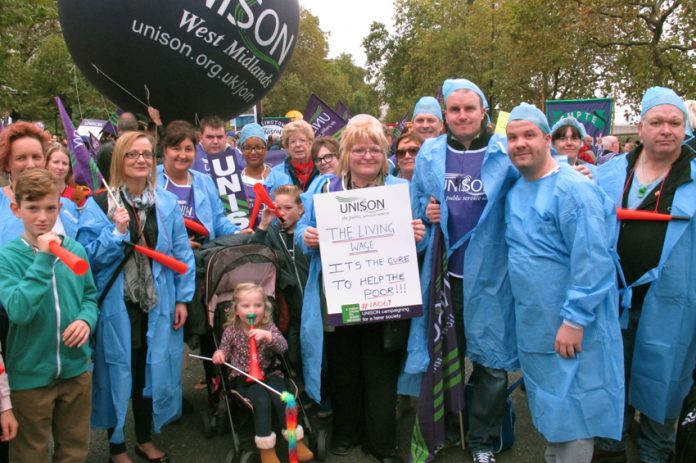BRITAIN’s Tax system ‘hits the poorest families hardest’. They are paying a staggering 47 per cent of their gross income in taxes, the TaxPayers Alliance said yesterday.
New analysis by the group suggests that Britain’s tax system is neither progressive nor balanced across different income groups.
The TaxPayers’ Alliance analysis shows the families on the lowest incomes pay a higher percentage of their gross income in tax than any other income group, and any increase in VAT would only make the situation worse.
The analysis showed that the average household paid £274 more in taxes than they received in benefits and services.
The analysis, compiled from Office of National Statistics data and written by Research Director Alex Wild, demonstrates that much of the rhetoric around ‘lifting people out of taxation’ or ‘ensuring that those with the broadest shoulders bear more of the burden’ is based more on perception than reality.
The TaxPayers Alliance said: ‘The honest truth is that consumption and property taxes continue to hit the poorest families hardest.’
‘The poorest 10 per cent of families pay by far the largest proportion of their gross income in taxes.
‘This is mostly due to indirect taxes such as VAT, Council Tax, fuel duties and duties on alcohol and tobacco.
‘VAT is the most burdensome tax for households in the lower half of the income scale, whilst Income Tax is the most burdensome for the upper half.’
Jonathan Isaby, Chief Executive of the TaxPayers’ Alliance, said: ‘This analysis shows how pernicious our tax burden has become. Not only does the tax system hit the poorest hardest, but those at the top are already contributing far more than anybody could reasonably describe as their “fair share”.
‘Our tax system is neither progressive nor fair, and we need radical reform as well as necessary savings if the way we tax and spend is to become fit for purpose.’
l Meanwhile the Trussel Trust has revealed that 500,000 people were given three days’ food in the first six months of 2014; 38% higher than same period last year.
It says that issues with social security remain top cause of foodbank use, but increasingly ‘low income’ is emerging as a growing problem.
The numbers turning to foodbanks are continuing to rise despite ‘economic recovery’, and more people are struggling to get by because their incomes are too low.
The charity, which runs a network of over 400 UK foodbanks, says that the number of people helped by its foodbanks in the first half of the 2014-15 financial year is 38% higher than numbers helped during the same period last year.
492,641 people, including 176,565 children, received food and support between April and September 2014, compared to 355,982 during same period in previous year.
Problems with the social security system account for 45% of foodbank use, of which ‘benefit delays’ make up 30% of referrals, and 15% is accounted for by ‘benefit changes’.
However, a new emerging trend is that 22% of those helped were referred because of ‘low income’ compared to 16% of referrals in the same period last year – in real terms, this means that 51,000 more people were referred to a foodbank due to low income.
